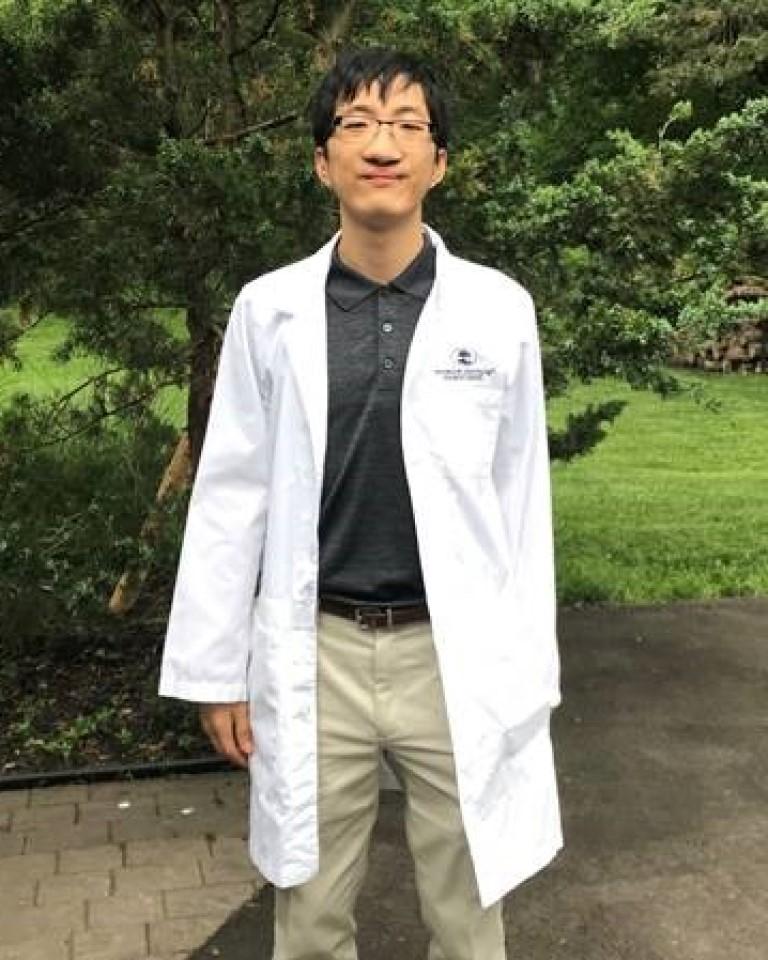Jack Swann

Student Spotlight | September 2019
Major: Behavioral Neuroscience, pre-med
Describe your research/creative work in just a few sentences that we can all understand. This past summer, I was chosen to be a Summer Scholar at the Stowers Institute for Medical Research. The lab I worked in investigates the neural circuitry of the murine olfactory system. The vomeronasal organ of the mouse, having around 250 genes which each express a unique receptor in it, is implicated in the execution of innate social behaviors like aggression and mating through its recognition of pheromones. What we wanted to do, and are still in the process of doing, is to define the specific function of these gene receptors and how they affect the aforementioned behaviors, which is done by CRISPR gene knock-out.
Q: Who mentors your project?
A: I was directly mentored by Limei Ma, but the head of the lab was Dr. Ron Yu.
Q: What surprised you about doing research?
A: The most surprising thing was probably the atmosphere. I don't know what I was expecting in a professional setting of scientists, but the camaraderie and cooperation was a very nice surprise.
Q: What did you find most challenging about getting involved in or doing your project? What advice would you offer to students facing similar challenges?
A: I found it hard to look stupid, and what I mean in saying this is that, being a great researcher doesn't mean you have to know everything, only that you're not afraid to ask if you don't, because what matters more than wounded pride is finding the truth. I won't deny that this is something I struggled with and realized only after I mucked up a presentation over things I should have asked my mentor to clarify. Nowadays, in my experience, a lot of students are hesitant to ask questions or answer them for fear of looking foolish in front of their peers, but with professional research, a lot of it can be obscure and niche, certainly, even to graduates much less an undergraduate like me. Asking questions is vital to making sure you know what's going on, if you don't understand a basic concept behind your research, then how are you going to move forward?
Q: What do you like most about your project?
A: I loved the presentation of it. After I had gone through the effort of analyzing all my data, then exporting that data onto graphs, to have it all laid out in front of me, on a poster that I got to present in an open forum, was amazingly gratifying.
Q: What advice would you give to a friend wanting to get involved in research?
A: Perhaps it is cheesy to say, but it is certainly true: nothing that is rewarding is easy. Collecting and analyzing data is not a very fun process, but it's like building a house, after putting in the work and making sure no corners are cut, you get to stand back and look at what your hard work has created.
Q: How do you spend your time when you're not working on your research?
A: I volunteer at the local crisis center, taking calls from people in crisis.